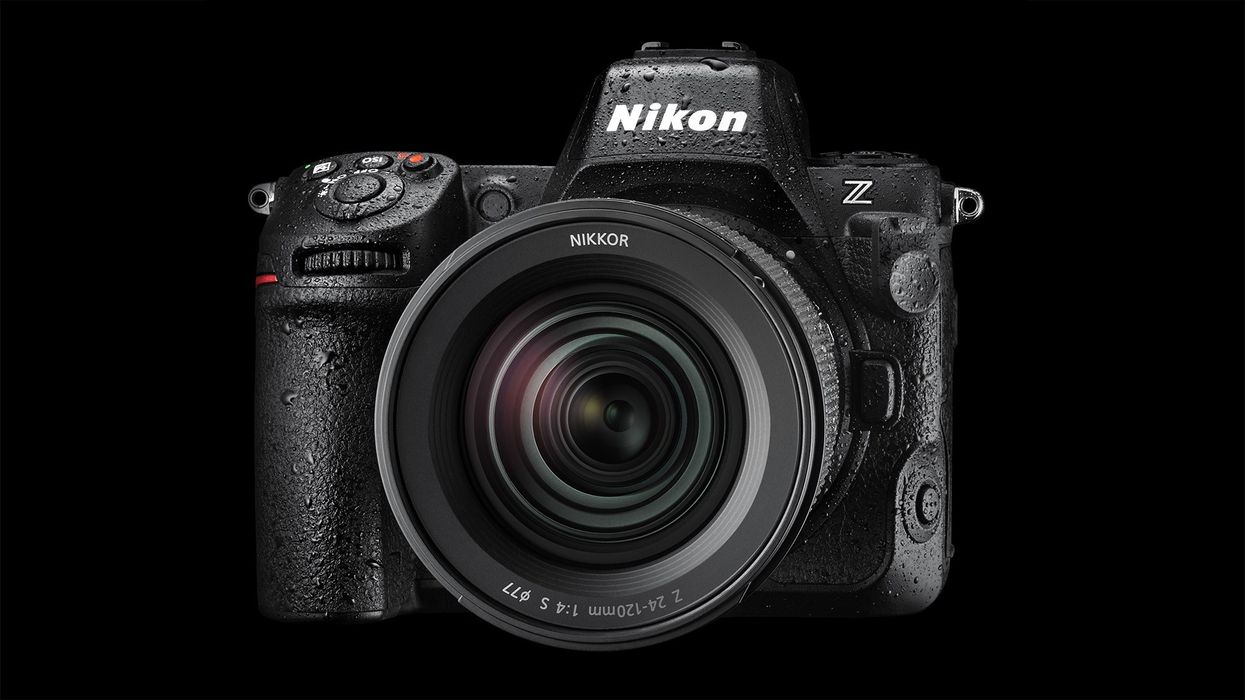The Nikon Z8 Is a Brilliant Hybrid Camera—so Why Don’t I Care?
This new hybrid camera packs loads of features for photographers and video shooters, but does it spark joy?

Nikon is a company that’s been around for more than 100 years. That’s a century. They opened their doors before penicillium was invented.
Over that time, Nikon created some of the best photography cameras and lenses. I still shoot on vintage Nikon lenses from the '70s, and my Cine-Modded lens kit is all in Nikon F-Mount.
When the Nikon Z9 was released, I was impressed with the feature set and floored by the price point. It was a hybrid camera focused on photographers and offered amazing video capacities and internal RAW.
This has now been followed by the Nikon Z8, a more compact and affordable version of the flagship. It’s equally impressive.
So, why does it feel like such a lackluster release? Before this turns into a philosophical conversation about the tools we use, let’s see what the Nikon Z8 is hiding under the hood.
The Nikon Z8 — 8K N-RAW Internally
More compact than its older sibling, The Nikon Z8 contains the same 45.7 MP full-frame sensor with a processor that can output 8K60p and 4K 120p video recording. Creatives will also find internal 10-Bit ProRes 422 HQ and 12-Bit Raw in Nikon’s own N-RAW. Will that last? That depends on how the lawsuit with RED will end.
The Nikon Z line is a photographer's dream. The company has always been known for its photography prowess, and the Z8 doesn’t disappoint. A blackout-free viewfinder and 4-Axis tilting monitor make shooting efficient and comfortable. The camera also doesn’t have a mechanical shutter, which produces a minimal rolling shutter, makes shooting absolutely silent, and offers raw or JPEG bursts at 20 fps at shutter speeds up to 1/32000 of a second.
Size-wise, the Nikon Z8 is also a lot more manageable, being 30% smaller than the flagship Z9. If you need the extra oomph of a battery grip, a dedicated vertical battery grip is also available.

Audio, Video, and Autofocus
The Nikon Z cameras are some of the few cameras that actively support internal RAW recording. Much like the Z9, the Z8. include 12-bit internally using Nikon’s N-RAW, as well as 10-bit ProRes. All this comes out at up to 8K60p recording or 4K 120p for slow-motion.
Autofocus on the Z8 uses deep learning to offer precision tracking across a wide range of subjects. This can capture humans, animals, and vehicles in difficult lighting environments or when the subject moves quickly.

With video tools that you've come to expect, like a waveform monitor, zebras, focusing peaking, and timecode, as well as 24-bit linear PCM audio recording with the ability to break out to XLR mics via an adapter, the Nikon Z8 feels more like a production camera than a photography one. But in this new hybrid world, is there really a difference?

For the size, the Z8 is impressive. The only other internal RAW hybrid camera that I can think of is the Canon RC 5. Sure, there are others, but those mostly fall into the cinema camera space.
So why am I not more excited?
A Clinical Tool
Once upon a time, a camera did one of two things: took photos or a moving image.
That lasted right up until Canon released its game-changing EOS 5D Mk II and 7D. But even as the lines blurred, we still got some unique cameras. The original BMCC 2.5K, the AJA Cion, the Canon C300, and most recently, the Sony FX3 and Fujifilm X-H2s.
Not all of these cameras were successful, but they ignited that urge inside me to go out and shoot. They were fun to use and allowed me to create images I was fond of.
I still shoot on an old Nikon FG-20. I adore my Canon 7D. My Fujifilm X-H1 is a joy to use. The last two cameras also have adapters for my Nikon lenses. I love Nikon. So why doesn’t the Nikon Z8 spark that joy?
Nikon Z8 Mirrorless Camera

- 45.7MP Stacked CMOS Sensor
- Lightweight Design
- 30% Smaller than Z9
- 8.3K 60p N-RAW
- 4.1K 60p ProRes RAW
- 8K30p and 4K120p Video
- 10-Bit Internal
- Up to 20 fps Raw
- 30 fps JPEG Shooting
- 493-Point AF
- AI-Based Subject Detection
- Blackout-Free Real Live Viewfinder
- 3.2" 4-Axis Tilting Touchscreen LCD
- CFx Type B & SD Memory Card Slots
- 5 GHz Wi-Fi and Bluetooth
Come to think of it? None of the last few Canon releases (besides the EOS R5 C) sparked any joy, either.
The more I sit with this question, the more I come to the conclusion that creatives may need a bit of creativity in their tools. If you have the skillset, 99% of the time, no matter what camera you get, it’s going to produce gorgeous images. So what makes you choose one over the other? Feature set? Resolution? Dynamic range?
When I choose my tools, I look for something that will give me that burst of inspiration, get out of my way, and allow me to create something cool I get this with all my cameras. But I think when a tool tries to be too clinical, kinda like what the Nikon Z series feels like, it lacks that je ne sais quoi.
Will the Nikon Z8 be an incredible tool for those who need it, be it for video or photography? Of course. It's a brilliant camera, but will it spark the fire in every creative? At this point, I can’t really say it will. Maybe I'm just not the shooter this camera is made for.
What do you think? Do you want the Nikon Z8 in your kit? Let us know in the comments!











